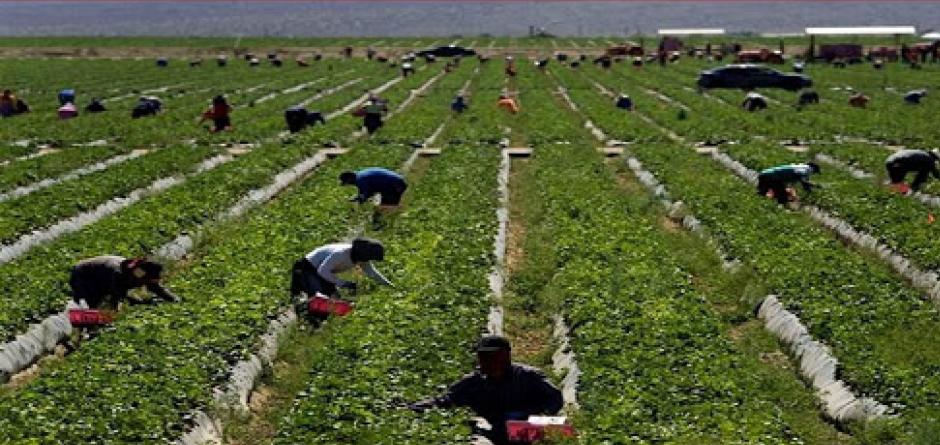
An aberration of human prehistory that remains
Every December 2nd is the International Day for the Abolition of Slavery, thus declared by the United Nations General Assembly.
In the common western globalized sense, it has been installed the belief that slavery is a subject of the past, a fact that occurred from millennia ago in human history and that culminates in the nineteenth century with its abolition. This is reflected in most educational and media systems.
The facts belie that conviction. They show that old forms of slavery still exist today. These forms of slavery are the result of deep-rooted discrimination against the most vulnerable groups in society, such as persons considered to be of a lower caste, indigenous peoples, refugee populations, forced migrants and, above all, extreme poverty as the root of all specific forms of slavery today.
Some centuries ago, the expansion of capitalism from the seventeenth century, used a network of buying and selling of human beings between Europe, America and Africa. Exploitation under the slave regime produced an exuberant economic growth, verified in the textile industry, the shipping company and the international trade of manufactures.
A culture of profit maximization was created, based on a human set of exploited workers whose masters extended their dominion over the descendants of the enslaved.
Capitalism and slavery are intertwined as the origin of one would not have been possible without the other. One cannot fully understand the essential characteristics of the industrial revolutions without knowing that it was the labor that contributed the transoceanic traffic of enslaved people, the productive force that accelerated the productive processes.
The modern states of the nineteenth century declared the abolition of slavery. France (1796, established again in 1804, abolished again in 1848); England (1833); USA (1865), Brazil (1888).
Haiti abolished slavery in 1804, this country two centuries ago was the first world producer of sugar (its production was equivalent to Cuba, Jamaica and Brazil together), the richest colony in the world, the so-called "Pearl of the Antilles" produced at that time more wealth than the 13 American colonies together, represented 40% of France's foreign market, generated half of the world's coffee and the wealth was produced by almost 500,000 people under slavery.
In Haitian soil later on there was a revolution that abolished slavery for the first time in colonial lands. Then the revolution was suffocated in a genocide, but served as a source of inspiration for the various rebellions and struggles against slavery, racism and for abolitionism later.
In Haiti, it is estimated that one child in twenty is now enslaved, referred to as "restavec. It is a system of child labor where very poor children are sent to rich families to help with domestic chores in exchange for education and a better quality of life. The truth is that they are often physically, sexually, and psychologically abused, fed precariously, and do not receive the promised education.
Entering the 21st Century there is the so-called modern slavery, which changes forms and is no longer supported by the law. It does not allow as in the past that the slavers are proven people, who acted under the legal order, who enjoyed enormous prestige and social recognition as it did with the "entrepreneurs" of companies such as the British, Royal African Company or the Dutch West India Company.
Modern-day slavery is a term that encompasses situations of exploitation to which a person cannot refuse or can be abandoned due to threats, physical violence or coercion. It takes several forms including sexual exploitation, forced labor, child labor and forced marriage.
The failure of modern-day slavers to publicly exhibit what they do does not prevent millions of people from being forced to work in subhuman conditions, under threat and psychophysical punishment.
According to the Global Slavery Index (GSI), currently more than 40 million people live under this condition of "modern slaves. This figure includes some 25 million people under forced labor and more than 15 million people (99% women) in forced marriage.
There are currently 5.4 victims of modern slavery for every 1,000 people in the world, despite the low percentage, the figure means that never in history were more people under slavery than at present; 1 in 4 victims are children.
According to the estimate of modern slavery, made in 2017 by the ILO, 16 million people are exploited against their will in the private sector (domestic work, construction industry or agriculture) 5 million are under forced sexual exploitation and 4 million are in a situation of forced labor imposed by the state.
Forced labor disproportionately affects women and girls, who represent 99% of the victims in trafficking and sexual exploitation. In 60% in other sectors.
In legal terms, Mauritania was the last country in the world to abolish slavery by law in 1981. In the current facts in this African country, it is estimated that 1% of its population lives in a state of slavery. Its parliament toughened the penalties in 2007 and then in 2014, equating the practices to a crime against humanity with 20 years in prison, but in fact the scourge of slavery continues.
Humanists affirm that it is necessary to create awareness that slavery exists today and that there have never been so many slaves living on the planet, even though it means little more than 0.5% of the total population of the planet.
The International Humanist Party denounces the inhumane practices of slavery and affirms that humanity has all the material conditions so that each person can live free from oppression and with their basic needs to have (food, housing, health, education, etc.) absolutely satisfied.
It is necessary to overcome this dominant materialistic culture, which subjects large human groups and has such brutal expressions as modern slavery. To achieve these aspirations of overcoming the human prehistory in which we still live, it is necessary in the broadest sense, the union of all and all humanists of the world
International Coordination Team
Federation of Humanist Parties
